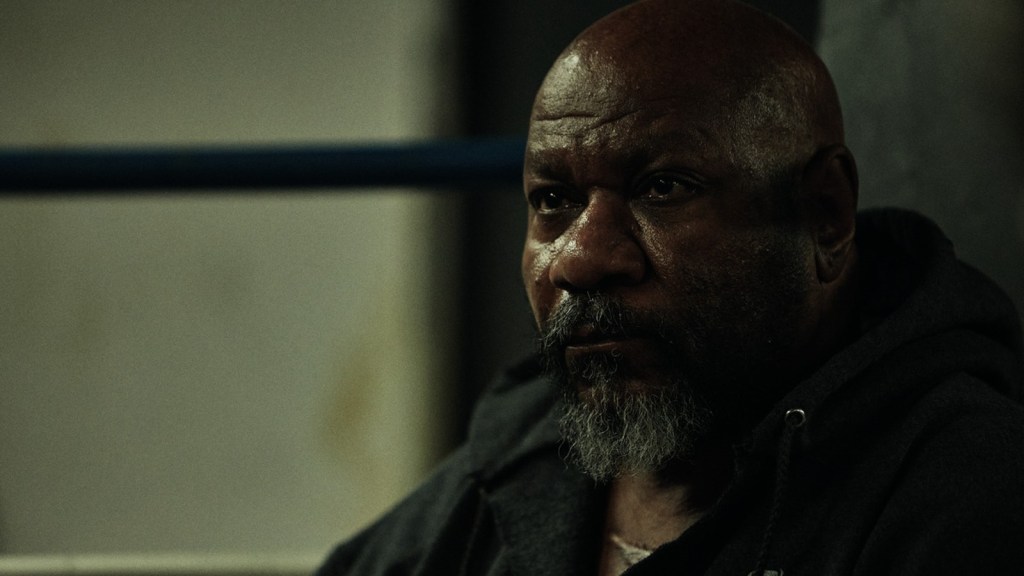
“It really is a fairy tale, an Oldenburg fairy tale,” says Torsten Ruether, speaking about his new movie Uppercut, “how this movie came together feels magical, somehow.”
Two years ago, Ruether was in Oldenburg, Germany’s leading indie film festival, presenting his debut feature, Leberhaken, a low-budget boxing movie with a distinctly Million Dollar Baby vibe: Newcomer Luise Großmann stars as a promising young pugilist who tries to persuade a disillusioned trainer (Hardy Daniel Krueger) to take her on as a pupil.
“We had the premiere, opening night, and at the party afterward a number of U.S. producers came up to me and said: ‘This is the kind of story American love. It’s been nearly 20 years since Million Dollar Baby. We want to redo this for the U.S.’”
Promises made over a few gin and tonics at an international film festival party aren’t usually the kind you can take to the bank but Ruether went to work on a script. He kept the basic plot but transferred the action from Berlin to New York, turned Luise Großmann’s character Toni (she reprises her Leberhaken role in Uppercut) into a first-generation German immigrant, and made the trainer character an African-American. The U.S. version also included a second timeline: Years later, we see Toni has become one of the very few successful managers in professional boxing.
“So we can see, even if we do compare the film to Million Dollar Baby, ours ends up in a completely different corner,” says Ruether. “At first, my American partners were very irritated because I was taking a very different approach. Instead of making the racial and social conflicts between this privileged, white girl and this working-class African American man the center of the story, I wanted to create an integrative story, where the main driving force was curiosity from both sides about the other.”
The script got sent around and famed casting director Michelle Lewitt (Transformers, Angels and Demons) set up a meeting to pitch a name for the role of Elliott Duffond, the African-American trainer.
“We were at Soho House and she said: ‘What do you think of Ving Rhames’? Ruether recalls. “I started to laugh. I told her I wanted a big name but I wasn’t thinking about a superstar.”
A quick conversation with his backers — Uppercut, like Leberhaken, was financed entirely independently, with no pre-sales, subsidy funding or studio money involved — and Ruether had the Mission: Impossible and Pulp Fiction star in a pay-or-play deal for a nine-day shoot in L.A.
“We did all the scenes with Ving and Luise there, in an old L.A. warehouse we did up to be the New York gym,” says Ruether. “Ving was nervous at first. After 20 years of shooting blockbusters, he was used to doing two lines a day. Here we did eight pages a day. It was a monster. He got out of his comfort zone. And I think he liked it.”
Ruether set up with two cameras, shooting dialog “theater style” and improvising elements like the training sessions between Toni and Elliott. The chemistry between the two leads, he says, was immediate.
“There was a real curiosity between the two that transferred to the screen,” he says, “on one take we were shooting a boxing session with the heavy bag. I was set to do a 30-40 second take but they were so into it, it was so mesmerizing, it was 40 minutes before I yelled cut.”
Ruether took the material from the first shoot back to Berlin to edit while he prepared for the second U.S. shoot, in the section, without Rhames, where Toni’s character is a successful boxing manager.
“There was so much material from the shoot with Ving and it was all so good,” says Ruether. “My editor, Nora Lüders, said: ‘I can make you a whole film from this.’ Which got me thinking: In music, you have the idea of Plugged and Unplugged versions of a song. Why couldn’t we do plugged and unplugged versions of our movie?”
Which is exactly what Ruether is doing. “We call them the still and sparkling versions because MTV has the copyright on plugged and unplugged,” he says, “but the version that Nora cut, the one that will premiere in Oldenburg, is the still version. It’s a quieter, more dialog-focused arthouse film. With a score by Sting’s guitarist Dominic Miller.”
The “sparkling” version of Uppercut, which Ruether describes as “more mainstream, box office” includes co-stars Joanna Cassidy and Jordan E. Cooper, includes a score by music collective Brass Against, and was edited by Savannah Bayse.
“She started from scratch with the same material as in the still version but without having ever seen it,” says Ruether. “And she didn’t pick a single take used in the first version. So I like to say these films aren’t twins, but they are siblings.”
The U.S. version of Uppercut was shot in the middle of the dual strikes with an interim agreement from SAG-AFTRA. “I’m so proud of that, we had someone from SAG on set every day and I think they’re doing a fantastic job,” says Ruether. “And we are the kind of truly independent productions, with no studio, no big backers, they want to support.”
Uppercut, the sparkling version, will hit the festival circuit later this year. Ruether is currently shopping both films to world sales companies.
“We have no pre-sales, we own them entirely so we can do what we want,” he says. “I think it could be a very sweet spot for independent films now because, at least by the winter, there will be a gap in the market, with fewer films getting made and the blockbusters being pushed to next year. People will be missing movies.”













